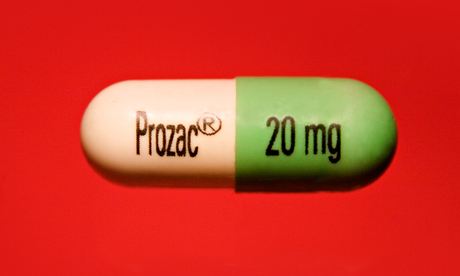
The chances are that you know someone who takes antidepressants. Or maybe you take them yourself. If so, you are in good company. More than 50m prescriptions for antidepressants are written in the UK every year and, although not all of the pills will be swallowed – taking into account repeat prescriptions and failure to collect from pharmacies – the figure is still staggeringly high.
There's a positive side to the 50m statistic, though. It suggests that as the stigma has decreased, people have become more willing to ask for help. And, for many, antidepressants work. However, while professionals are quick to acknowledge the benefits – which can be life-saving – many express concern about our growing dependence.
"Prescription levels have gone through the roof," says Dr Matthijs Muijen, head of mental health at WHO Europe. "On the demand side, people know antidepressants work. I would even argue there's a degree of fashion about antidepressants. On the supply side, antidepressants have become cheaper and more easily available. Doctors now know it's easy and 'good' to prescribe."
Key to arguments around antidepressant use are questions about what constitutes "normal" sadness and where the boundary lies between this and clinical depression. There is no cut-and-dried answer, and this ambivalence around the use of antidepressants seems to be characteristic of those taking them. "It's not ideal, but I just make use of the resources available," is a characteristic response.
Lisa Cunningham, 45, was signed off on sick leave and prescribed Prozac after suffering problems at work. Soon afterwards, she was attacked, leaving her with facial injuries and even deeper depression. For nearly 11 years, Lisa remained on medication, becoming steadily more withdrawn, until she barely left the house.
Cunningham's story has a positive outcome: after being referred to a volunteering scheme by her GP she got involved in a gardening project which led to a full-time job. She then felt able to stop taking her medication. "Antidepressants did a vital job and I definitely think I had clinical depression," Cunningham says. "But I was a nervous, anxious child." She explains that while growing up, she was subjected to physical aggression from people close to her, "so it was almost inevitable I'd get depression. Looking back, it would probably have been better if I'd had some sort of psychotherapy in school."
For Darren Ellis, 40, life events and mental health have been similarly linked. Ellis lost his father at 16 and at the time was not offered any support. Ellis's depression and anxiety developed and he was prescribed medication after medication. None of the drugs worked and he twice attempted to take his own life. It was only this year that he was able to get the one-to-one cognitive-behavioural therapy (CBT) that, he says, is finally helping him to recover.
Ellis believes things could have been different; that the depression could have been prevented. "I'm sure I could have avoided taking medication if I'd had therapy immediately," he says. "I was confident – the life and soul of a party – until my dad died."
The link between life events and depression is of course not disputed, but it is of particular relevance now. A report by The Health and Social Care Information Centre revealed that in many places in the UK – including Barnsley, Durham, Middlesbrough, Redcar, Salford and Sunderland – approximately one in six adults are prescribed antidepressants. By comparison, in affluent Kensington & Chelsea, it is one in 21.
Since the recession began, Mind has reported a dramatic rise in the number of people calling its phone line. "There are clear links between unemployment and depression," says Sophie Corlett, Mind's director of external relations. "After six months, one in seven unemployed men will develop mental-health problems. People are falling into debt and there's a reciprocal relationship between debt and mental health."
While almost everyone with experience of antidepressants reports finding them useful, many could have made use of alternative forms of help. "We know that people go to the doctor because they're feeling low, and the reasons may be domestic violence, debt, bereavement, marriage breakup, difficulties from past trauma," says Corlett. "Some of these are practical and could have practical solutions, while some are deep-rooted psychological issues that need dealing with. Antidepressants are not always the answer."
For mild to moderate depression, unless it is persistent, the National Institute for Health and Care Excellence (Nice) does not recommend medication as a first resort. However, despite the government's investment in the Improving Access to Psychological Therapies programme, in some parts of the country people wait months for access to CBT or similar treatments. Likewise, it does not appear that people's prescriptions are always reviewed every six months, as Nice suggests.
There are many problems with prescribing antidepressants when there could be an alternative solution. Antidepressants have side-effects that we are only just discovering and, although prices have dropped as patents expire, the cost to the NHS is still huge.
It is impossible to gauge whether we live in a more stressful age than that of our grandparents. What is certain is that attitudes and access to drugs have changed. On balance, this is a good thing. But as the economy continues to flounder, the number of people struggling with mental-health issues is likely to increase, almost certainly leading to the writing of yet more prescriptions.
"My worry is that we are medicalising all forms of sadness in the belief that antidepressants are a safe drug that you just prescribe," says Muijen.
Mind has called for accurate research to be carried out into how many people are taking antidepressants, how long they take them for and whether they are receiving any other treatment. It is a serious problem, Corlett says, that this data does not exist. Antidepressants are a vital tool. But if, in many cases, we are simply papering over cracks, we should, as a society, face up to the depth of the problem.

